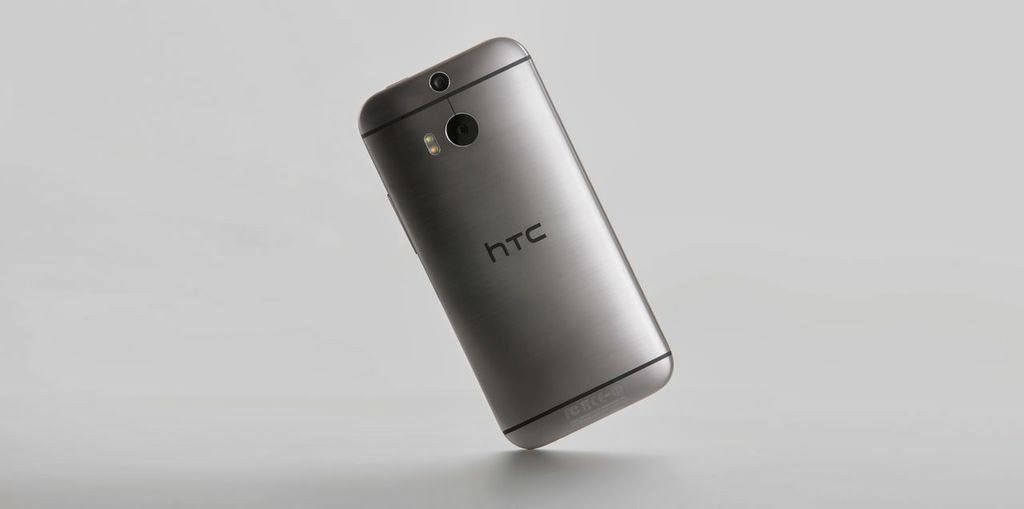At an event held in New York this Tuesday HTC has launched its new flagship smartphone called HTC One aka the M8, keeping the name the same, the company has made major improvements to designhardware and software.
Design
The HTC One (m8) features a new wrap around design that vs the previous generation wrap all the way around to the front, giving the new M8 a completely new look and a brilliant new feel. HTC claims that the body of the new HTC One is 90% metal vs the 70% metal seen on the HTC One last year.
HTC has maintained the BoomSound design and claims a better sound from the device, which at first go on the M8 sounds much deeper and louder than the original One. The redesigned speaker chambers provide unto 25% more audio output and the new multi-band amplifier ensures better sound.
Hardware and Specs
The HTC One M8 features the new Qualcomm Snapdragon 801 chipset with a 2.5 GHz Quad Core Cpu for Asian market and a 2.3GHz Quad Core Cpu for the US market. The Front of the HTC One M8 features a 5inch 1920 x 1080p display which to some will seem like a loss considering many now offer a 2k display, the front is also covered with Gorilla Glass 3. On the inside is 2 GB of RAM and 16/32 GB storage options. You get 50 GB of Google Drive and 128 GB Expandability via microSD.
The Duo camera design features an Ultrapixel camera along with a depth capture camera which is detailed below. The main camera has a BSI sensor, a pixel size of 2.0 um, a sensor size of 1/3”, and an aperture of ƒ/2.0 with a 28mm lens. The Front camera has a 5MP BSI sensor, an aperture of ƒ/2.0 wide angle lens with HDR capability and 1080p Full HD video recording.
The HTC One M8 supports the following 4G/LTE bands :
EMEA: 800/900/1800/2600 MHz
Asia: 700/900/1800/2100/2600 MHz
AT&T: 700/850/AWS/1800/1900/2600 MHz
Sprint: FDD 800/1900 MHz , TDD 2600 MHz
Verizon: 700/AWS/1800/2600 MHz
Tmus: 700/AWS MHz
The battery on the M8 is a 2600 mAh LiPo battery and a new power saving mode promises an additional 30 hours with just 10% battery remaining.
OS and UI
This is what makes the HTC One M8 really special. A lot of focus has been spent in making this device feel like its running a custom OS. The HTC One M8 comes with Android 4.4.2 out of the box, but whats interesting is that the new HTC Sense 6 really makes the device look and feel different.
The HTC Sense 6 is sort of a mix of the previous gen Blinkfeed and a Windows Phone approach to tiles. With larger more rectangular updates in a vertical grid.
HTC has also made many interesting changes to the usability of the OS, from launching apps to tapping to unlock the device (not new) . The new Image Match tool lets you search by image and create an album featuring similar content. The new timeline view allows you to View your photos in Timeline view according to when they were taken.
New Apps from HTC including the new HTC Sense TV have been redesigned to allow more functionality and added features like showing you the social feed of the show you are watching.
The HTC One M8 has also not left out on the Fitness aspect of things thanks to the new pre loaded Fitbit app that uses the hardware within the phone to monitor your fitness. When you go for a run drop the phone and use the fitbit band and then later sync with your phone to get a comprehensive result at the end of the day.
HTC One M8 Duo Camera
The HTC One (M8) camera utilizes a dual lens and sensor configuration coupled with new processing hardware to mimic the stereoscopic vision capabilities of the human eye –two independent lenses allow it to detect and calculate the relative distance of subjects in the image. The imaging system then assigns properties to each individual pixel, which allows them to be re-purposed and reprocessed to maximize image quality.
HTC Claims that the camera can now accurately emulate the look of high-end lenses and dedicated professional camera systems. It enables “pro look” images with finite shallow depth-of-field control and captivating ‘bokeh’ and focus fall-off, which is particularly effective in portraits.
The HTC One M8 also bundles in effects into the camera library with the use of the enhanced camera hardware and the new UI traits of the new Sense 6.0 , the end resultant images can come out quite brilliantly, especially the seasons effect and the diminutional change effect, samples below.
Sample 1
Sample 2
Source: Igyaan




0 comments:
Post a Comment